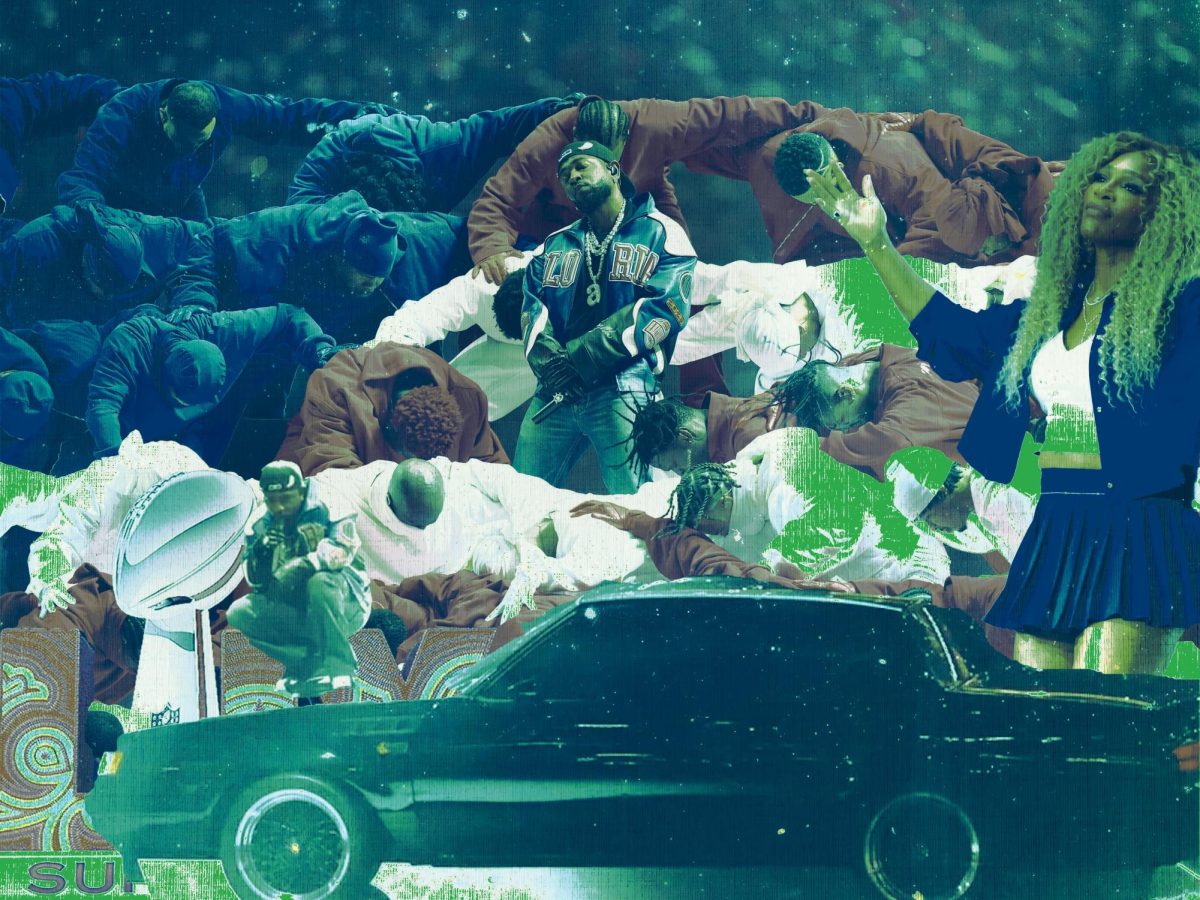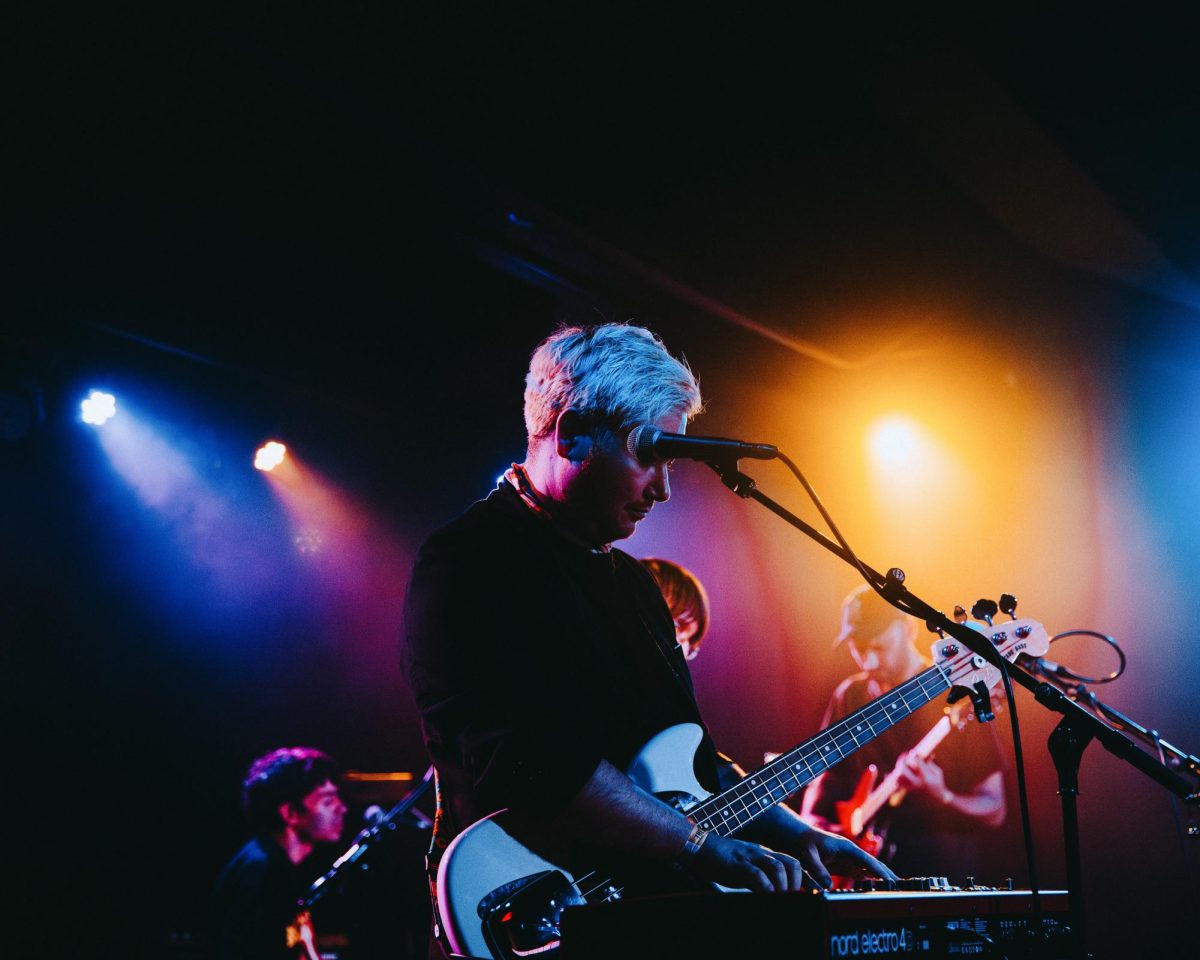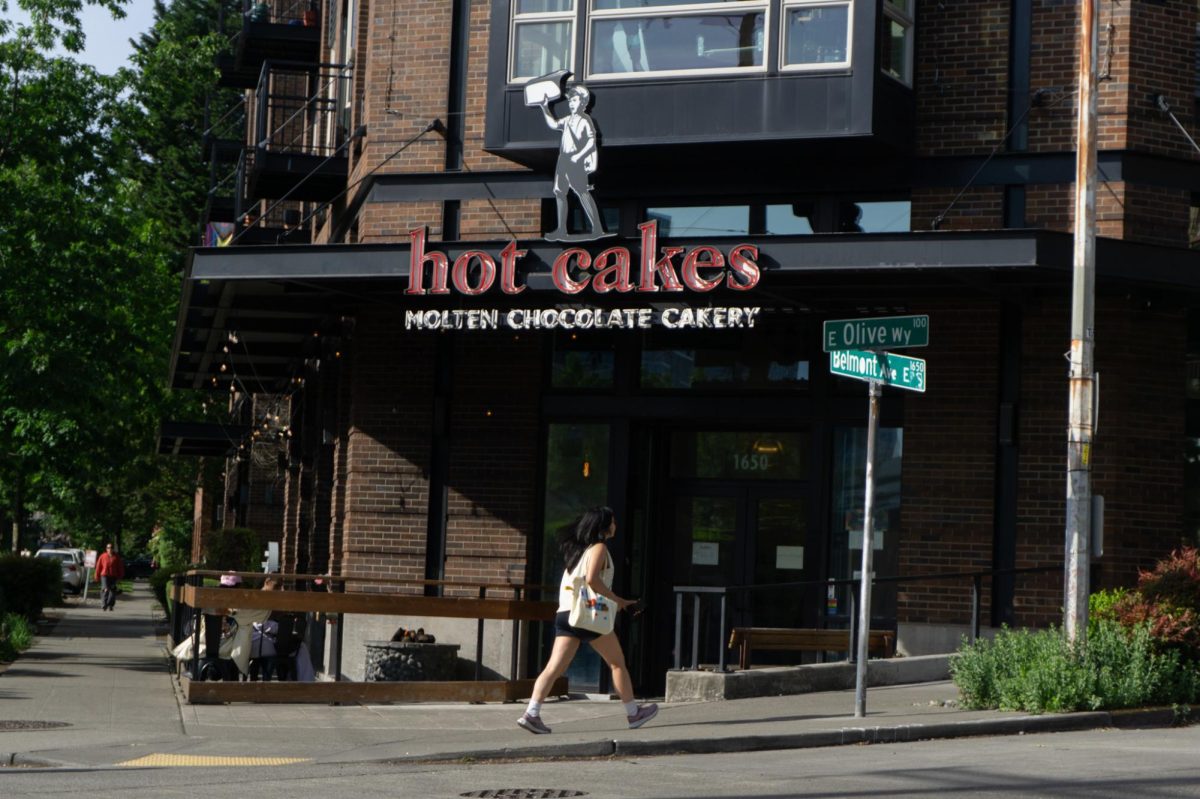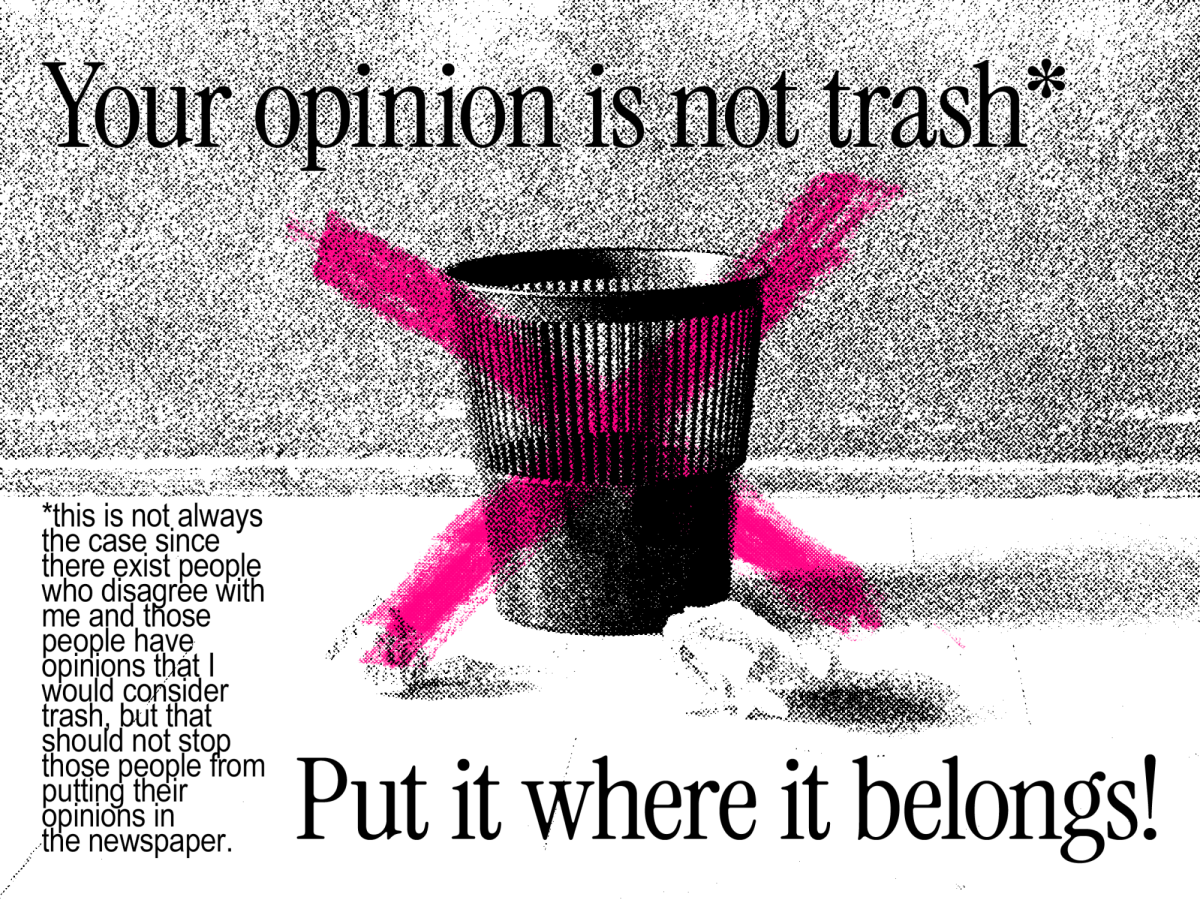This past weekend, Kendrick Lamar delivered a genius performance of symbolism at the Super Bowl halftime show uplifted by artistry. There’s a lot to unpack from the hidden messages and larger political culture embedded into the show.
Samuel L. Jackson appeared on screen as Uncle Sam. Choosing a Black man to portray a traditionally white, symbolic figure of America was a bold choice.
Jackson introduced the show by welcoming everyone to the “Great American Game.”
Kendrick opened the show with lyrics from an unreleased song tentatively titled “Bodies.” The lyrics act as a disclaimer— “Everybody must be judged” / “Twenty years in, still got that pen dedicated to bare hard truth.” Kendrick was not performing for entertainment, but to speak up because that’s what his career is for.
Starting off strong, Kendrick played with lyrics from a Gil Scott Heron song, “The revolution about to be televised, you picked the right time but the wrong guy.”
Heron fused his music with activism: Kendrick’s play on the words from “The Revolution Will Not Be Televised” is a clear message that he is bringing the change starting on that stage. The line was even more powerful considering President Trump in the audience.
Next was “Squabble Up,” a song about identity and self-determination. Kendrick embraced facing challenges head on while Uncle Sam dismissed his performance as too “ghetto.”
This reflects the relationship between rappers and America—rappers are seen as too loud, too raw, not the patriotic show expected at a Super Bowl halftime show.
The next song performed was “HUMBLE,” with the background dancers creating an image of the American flag, Kendrick splitting it down the middle. “HUMBLE,” paired with a divided flag made up of Black men reflects Kendrick’s dual identities; being a famous rapper in a fake industry pushing for a more truthful society. The imagery of the flag is intentional, representing a nation divided between its American image and reality.
Before “Peekaboo,” Uncle Sam interrupts, unhappy with the “ghetto” performance. He then faces the camera and says, “Scorekeeper, deduct one life.” This chilling line mirrors how America reacts when Black communities get “too loud”—a direct callout to police brutality and systemic racism.
At the end of Peekaboo, Kendrick teased performing “Not Like Us,” sparking speculation. In classic Kendrick style, he shaded Drake with, “I wanna perform my favorite song / But you know they love to sue.”
Instead, Kendrick pivoted and performed “Luther” and “All The Stars” with SZA. These songs still added to Kendrick’s stage of revolution.
From the Black Panther soundtrack, Kendrick chose lyrics such as “Confrontation ain’t nothin’ new to me,” showing he isn’t afraid of fighting for justice. “Oh, you important? You the moral to the story? You endorsin’?” calls out the American political figures watching. They try to control the narrative but failed—Kendrick took to the stage with a delivery of revolution.
Uncle Sam responds with praise to the duo’s performance, “That’s what America wants,” but walks away frustrated when the track for “Not Like Us” interrupts him.
Kendrick’s smile during “Not Like Us,” wasn’t for the camera, it went straight for Drake as he called him out; “Say Drake, I hear you like em young” on national television and had the whole stadium screaming “A minor.”
Marisa Sexsmith, a fourth-year communication and media student at Seattle University said that Kendrick’s performance of “Not Like Us” was iconic.
“I don’t think that the performance would have been as newsworthy if he hadn’t [performed Not Like Us],” Sexsmith said.
Serena Williams popped up dancing the crip walk, the same way she celebrated winning the 2012 London Olympics. Kendrick wants people to understand the larger picture with his performance and Williams’ cameo, with her wearing a tennis skirt, is a shout out to the strained history of colored women in sports, specifically for Williams who had to climb a mountain of prejudice to succeed.
Kendrick signs off with “tv off,” altering his lyrics; “Super Bowl made you a feat, you die, I bet it,” marking his triumph. The stage goes dark, with “GAME OVER” displayed from the stands, wrapping up the notion that his performance was a symbol of the larger American game.
Tyrah Majors, an adjunct professor of communication at Seattle U wrote to The Spectator that she wasn’t surprised at Kendrick’s message-packed performance.
“Whether you agree or not with the choice of the music, choreography, cameos, etc., it’s hard to ignore the impact a moment like that can have on the collective thinking of millions of people,” Majors wrote.
She also acknowledged his skill as a versatile artist.
“Kendrick isn’t afraid to blur the lines between personal, cultural and universal issues. It wasn’t just about making a statement; it was about reminding us that entertainment is always intertwined with the larger social fabric,” Majors wrote.
Posts on social media have shown a moment—which was not aired during the show or intended as part of the performance—of a backup dancer holding up a flag with “Sudan” and “Gaza.” While unintentional, this forms an obvious statement of censorship and silence from the “Great American Game.” The performer was tackled, handcuffed and removed from the field by security.
In an interview with Apple Music, Kendrick spoke about how he sees his role as a musician.
“I can truly say it’s to express myself and express things that people can’t necessarily say on the daily.”
Kendrick honored this at the Super Bowl Halftime show; he showed up for the people and now it’s time to see how the people respond.










